About the Landscape Architecture Program
Our Program offers an accredited, professional, four-year Bachelor of Science degree (BSLA) and Master of Science and Doctor of Philosophy degrees in landscape architecture. Read our BSLA program disclosure statement.
Undergraduate students who declare as landscape architecture majors as freshmen or join us before their sophomore year typically complete their degrees in four years at the University of Connecticut. Students who join us later in their academic career usually take three years from the time they join us to complete the degree.
This major provides instruction in site planning and design, landscape history and theory, landscape architectural graphics, communication and presentation, construction methods and professional practice, and soil and plant science. Through seminars, studio projects and internships, students apply their ideas and acquired knowledge through case studies, project-based work, service-learning, and community outreach and engagement.
Graduates from our program go on to do high-level graduate studies in related fields, work in nationally recognized firms, and become national, state, and local leaders.
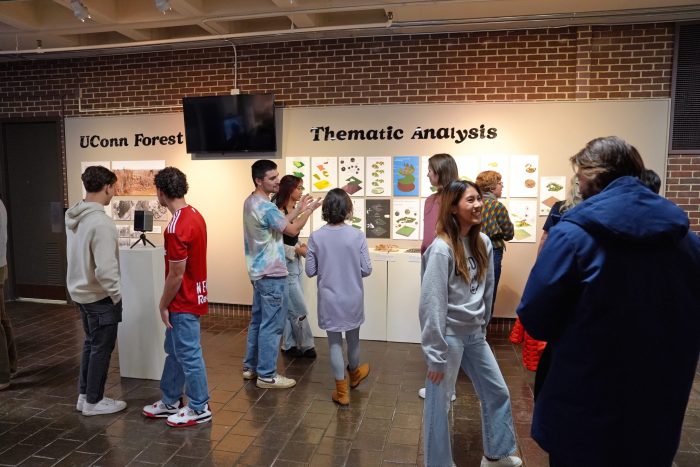

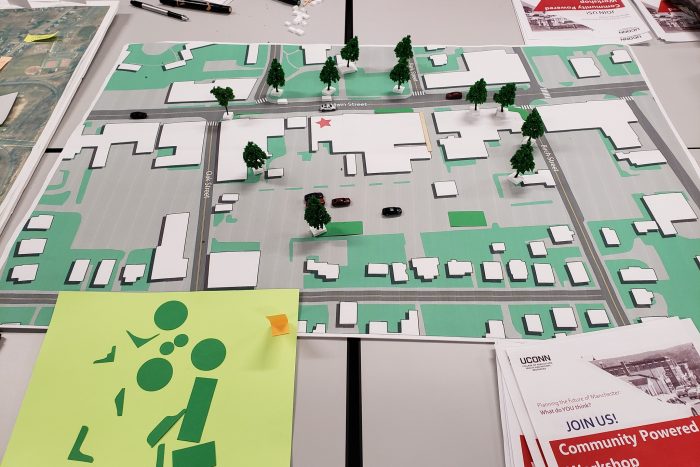
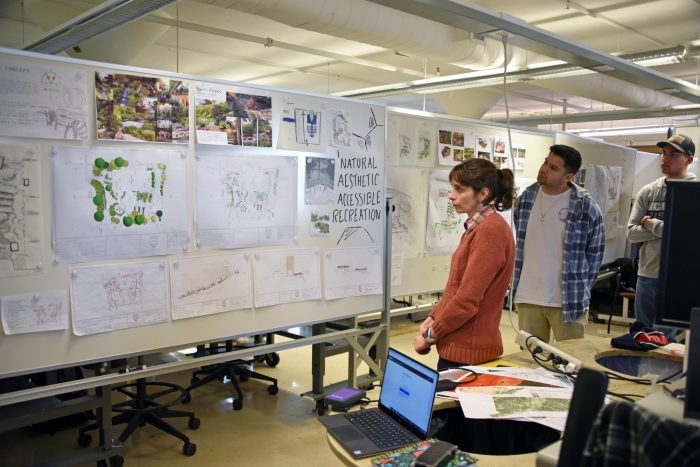
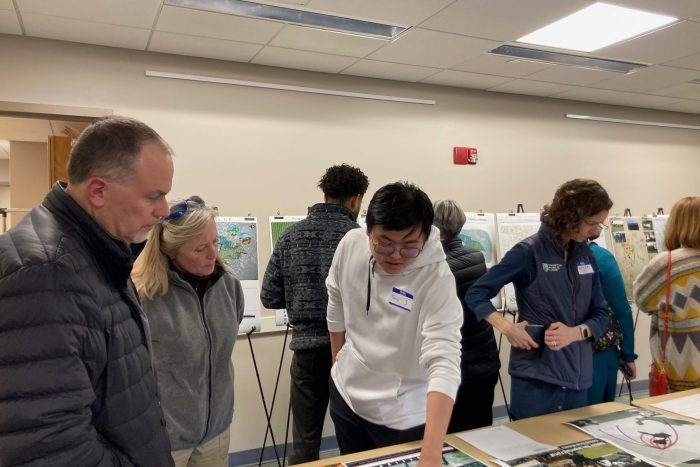
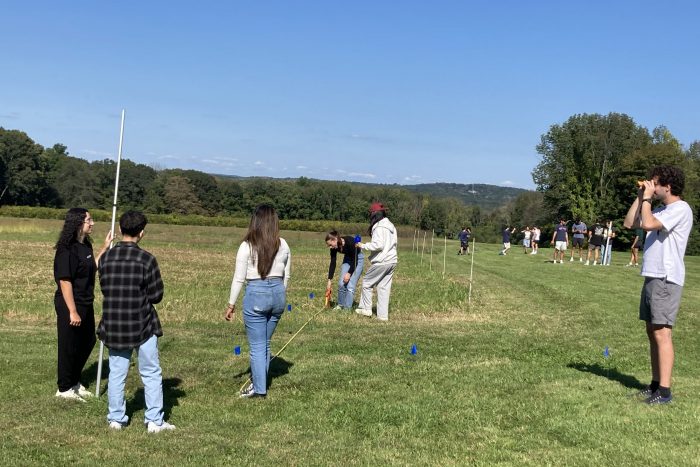
Accreditation
The BSLA program is the only fully accredited professional program in the State of Connecticut. Accreditation is done by the Landscape Architecture Accreditation Board. The program received its initial accreditation in 1998. The next accreditation visit will take place in 2024. Read our BSLA program disclosure statement.
Tuition
Please find more information on University Tuition and Fee Information. The college offers numerous scholarships and is continuing to expand its scholarship programs. We make every effort possible to make sure that you can come and thrive at UConn.
Advising
The university and the college take advising very seriously and the landscape architecture program is small and caring. Every student has an advisor in their major and given the nature of instruction and the small class sizes, students have incredible access to the LA faculty. We ensure that you are supported.
Computing
Students will work on laptop computers throughout their time in the LA program. Computing requirements are:
- 11th Generation (or higher) Intel ten-core processor running 32GB of RAM and a solid-state drive (SSD) with 512GB storage (minimum). Graphics card with dedicated RAM capable of displaying resolutions higher than 1920×1080. 15" (minimum) screen.
While it is expected that students will come to the program with a suitable computer, some laptops are available for student use. There are also computer labs in the College of Agriculture, Health, and Natural Resources available for student use, including a Geographic Information Systems Lab. We will provide a computer for all students for whom purchasing a high-capacity laptop is not possible. LA Computer Guidelines
Maker Spaces
The Program and the University are well-equipped with maker spaces, which house equipment for building and model-making including 3D Printers and Laser Cutters. We value craft and experimentation!
Internships & Research Assistance
Many students pursue internships and research opportunities during their time at UConn. Please refer to the Experience section for more information on student opportunities.
Degree Requirements
This is a nationally accredited, professional degree program. Students earn a BSLA degree.
Undergraduate Catalog major requirements
View your plan of study by navigating to the appropriate catalog year.
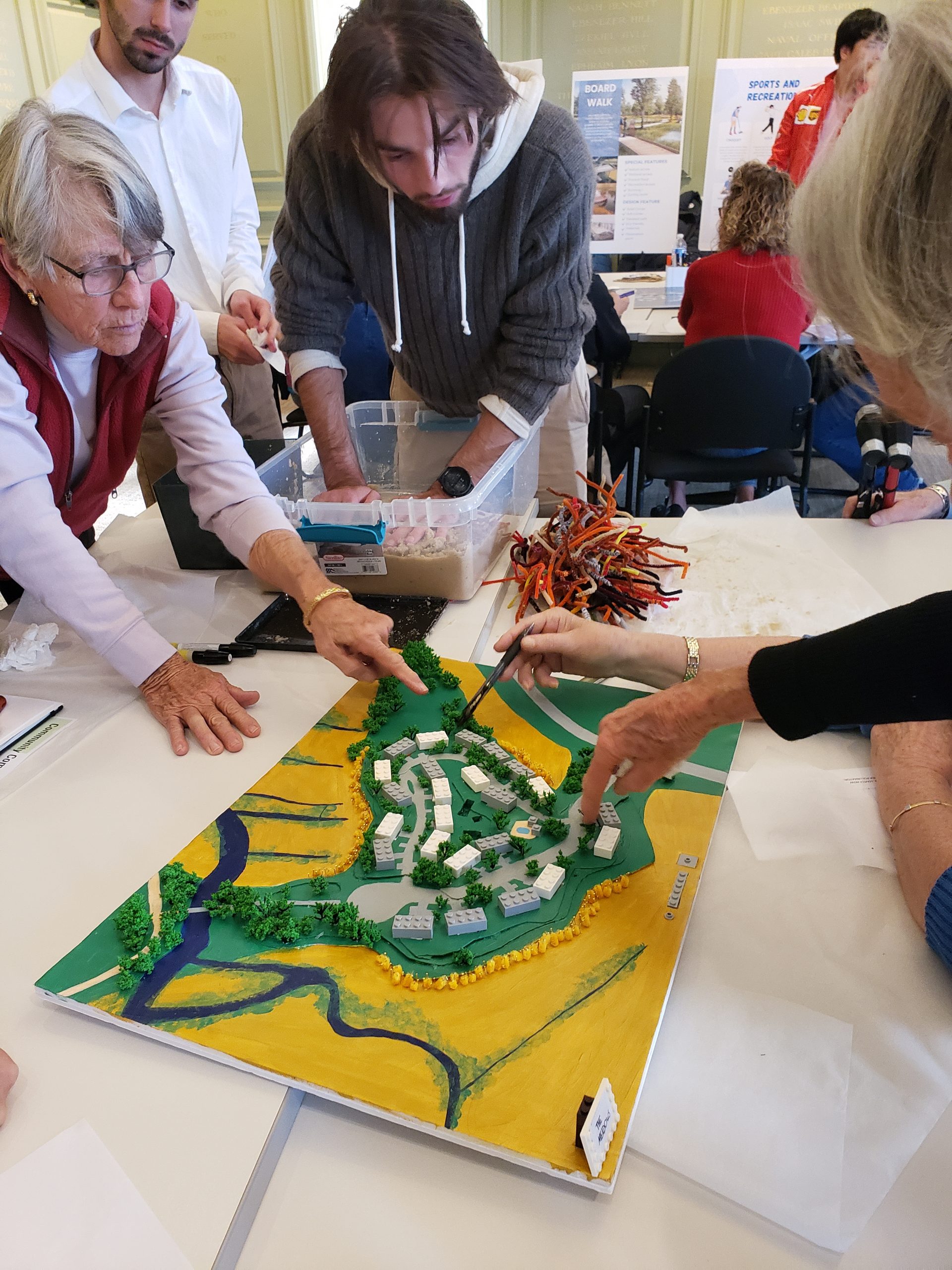
Students present work to the residents in Design IV: Community Planning.
Sample Sequences
Sample sequences of courses are for advising purposes. Landscape Architecture courses must be taken in the sequence shown, but the sequence of some courses, such as electives, may vary for each student depending on previous coursework, academic preparation, and career goal.
Landscape Architecture Sample Sequence of Courses
Sample Sequence of Courses PDF
UConn Graduation Requirements are found at catalog.uconn.edu - these include major and general education requirements (Content Areas: 1, 2, 3, and 4, Writing, Quantitative, **Foreign Language and Environmental Literacy).
Students normally average 15 credits per semester over a 4-year period (fall/spring only) to meet the 120 academic credits required.
First Year
| Fall Semester
GEN ED: BIOL 1108 Principles of Biology or 1110 Introduction to Botany* (4 credits) GEN ED: STAT 1100Q Elementary Concepts of Statistics (4 credits) GEN ED: ENGL 1007 or 1010 or 1011 (4 credits) GED ED: URBN 1300W Exploring Yr Community1 (CA 2,4 W) (3 credits) UNIV 1800 FYE (1 credit) Total: 16 credits |
Spring Semester
GEN ED: GEOG 1700 World Regional Geography 1 (CA 2, 4) (3 credits) GEN ED: ANTH 1010E Global Climate Change and Human Societies1 (CA 2, 4) (3 credits) GEN ED: CHEM 1124Q* (CA 3) (4 credits) GEN ED: SOCI 1501W Race, Class, and Gender1 (CA 2, 4) (3 credits) Plant Science Elective: (1 required -- SPSS 1060, or 2430, or 2500E, or EEB 2100E recommended this semester) 4 (3 credits) Total: 16 credits |
Second Year
| Fall Semester
LAND 2110 LA: Graphics I – Design Drawing (4 credits) LAND 2210E The Common (Shared) Landscape of the USA (3 credits) SPSS 1300 Introduction to Soil Science*3 (3 credits) SPSS 3410 Woody Plants: Common Trees, Shrubs, and Vines* (3 credits) GEN ED: ARTH 1162 Introduction to Architecture1 (CA 1) (3 credits) Total: 16 credits |
Spring Semester
LAND 2120 LA: Graphics II – Design Communication (4 credits) LAND 2220 History of Designed Landscapes (3 credits) LAND 2410 LA: Design I – Site Analysis (5 credits) Elective OR SPSS 2120 Environmental Soil Science3 (only take SPSS 2120 if not taken SPSS 1300) (3 credits) Total: 15 credits |
Third Year
(If considering Education Abroad, the Spring semester of the junior year is recommended in some majors).
| Fall Semester
LAND 3130 LA: Graphics III – Computer Applications (4 credits) LAND 3310 LA: Construction I – Site Engineering (4 credits) LAND 3420 LA: Design II – Space, Form & Meaning (5 credits) Total: 13 credits |
Spring Semester
LAND 3311 LA: Construction II – Planting Design (4 credits) LAND 3430 LA: Design III – Program Development (5 credits) LAND 3230W Sustainable Environmental Planning and Landscape Design (3 credits) Elective or Plant Science Elective (1 required – 1060, 2430, 2500E, 31502, 3550, 3640, 42102) 4 (3 credits) Total: 15 credits |
Fourth Year
| Fall Semester
LAND 3312 LA: Construction III Materials & Methods (4 credits) LAND 4340 LA: Professional Practice (3 credits) LAND 4440 LA: Design IV – Community Planning (5 credits) Plant Science Elective (1 required – EEB 2100E, NRE 2415, SPSS 1100 or 1125 or 38102) 4 (3 credits) Total: 15 credits |
Spring Semester
LAND 4294 LA: Seminar (3 credits) LAND 4450 LA: Design V – Capstone (5 credits) Elective (3 credits) Elective (3 credits) Total: 14 credits |
LAND COURSES MUST BE TAKEN IN THE SEQUENCE SHOWN.
*Required Course and recommended sequence (i.e., best taken in semester indicated.)
1Recommended course. 2Prerequisite required.
3Either SPSS 2120 or SPSS 1300 can be taken to meet this requirement. Substitute for spring course SPSS 2120 Environmental Soil Science if have Turfgrass Management Minor.
4One of the following: EEB 2100E, 4272; NRE 2415; SPSS 1060, 1100, 1125, 2430, 2500E, 3150, 3550, 3640, 3810, 4210. Only one course at the 1000-level can be used to satisfy this requirement.
**Required if student has not met the University requirement of 3 years of a single foreign language in high school.
Students can elect to enroll in Summer/Winter sessions. Course options can be found at summerwinter.uconn.edu.
Students interested in Education Abroad, egl.uconn.edu, should discuss options (semester, winter or summer) with major advisor.